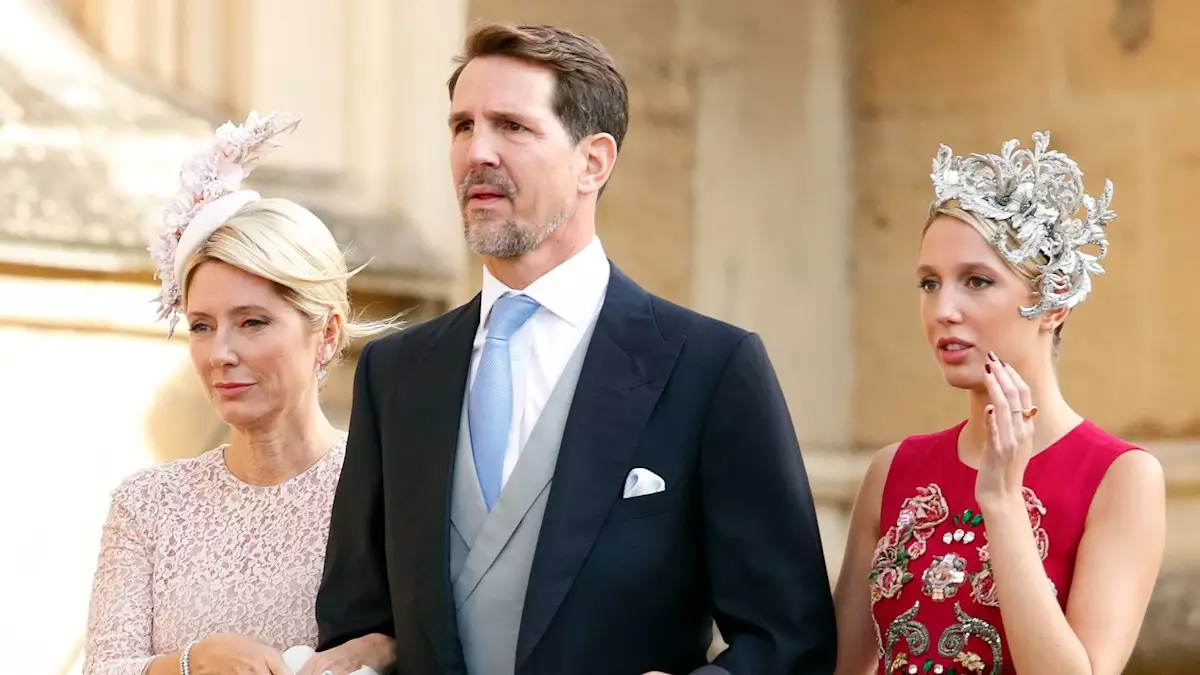The Greek monarchy, once a revered institution, faced tumultuous times that culminated in its abolition. King Constantine II, who reigned from 1964 until the monarchy was dismantled in 1973, became a symbol of both royal legacy and political upheaval. His exile following a failed counter-coup attempt against the military junta not only marked a turning point in Greek history but also led to a deep-seated divide between royalists and republicans. For decades, the royal family lived in the shadows of their former glory, with their citizenship stripped away in 1994 amidst legal disputes over royal properties. This estrangement from their homeland was not just a personal loss but also a painful reminder of the nation’s turbulent past.
Recently, the Greek royal family has initiated a significant and historic move to reclaim their citizenship by officially recognizing Greece as a republic. This declaration signifies a shift from the long-standing royal claims to a more modern and reconciliatory stance. In a significant gesture, several members of the royal family, including the children of King Constantine II, have adopted the surname “de Grece,” symbolizing their connection to Greece while accommodating the current republican framework of the nation. This shift appears to be a step towards re-establishing ties with their ancestral home while acknowledging the changes that have shaped modern Greece.
Athanasios Balerpas, an Interior Ministry official, described the declaration as a resolution to a “historically pending matter.” His remarks suggest a broader recognition that moving forward requires acknowledging the past and finding ways to heal historical divides. The official stance of the family, while largely symbolic, paves the way for discussions about citizenship and possible reintegration into Greek society.
The Path to Citizenship and Its Implications
While the declaration is a significant stride, the pathway to actual citizenship remains convoluted. Official approval from the government is required, which would need to be documented in the government gazette before any members of the royal family can apply for identification papers or passports. This bureaucratic requirement highlights the complexities involved in such transitions, especially when past grievances linger.
There is considerable public interest in how this development will unfold, not only for the royal family but also for the Greek populace. As the royal family seeks to regain their citizenship, questions arise about the parallels between the royal family and Greece’s national identity. Will this move foster reconciliation and nostalgia for the past, or will it reignite unresolved tensions?
Interestingly, the royal family’s push for citizenship comes at a time of personal significance, notably marked by the recent wedding of Princess Theodora. This joyous event symbolized a celebration amidst the backdrop of political maneuvers and collective family history. The wedding garnered public attention not only because of its royal status but also for its emotional significance following the death of King Constantine II. Such familial milestones may serve to humanize the royal family, bridging the gap between their royal lineage and contemporary Greek society.
The participation of family members in Theodora’s wedding showcased a united front, subtly indicating a desire for re-engagement with their Greek heritage. Crown Prince Pavlos personally greeted and thanked the crowds, emphasizing the royal family’s commitment to reconnecting with the Greek people.
As the Greek royal family navigates their quest for citizenship, the implications of their actions extend beyond personal desires; they touch on broader themes of national identity, reconciliation, and the legacy of history. Their acceptance of Greece’s republican status paired with official declarations signals a potential new chapter—not only for the royals but also for the nation itself.
In navigating this complex terrain, the Greek royal family may find that their journey toward reclaiming citizenship could foster a revitalization of public interest in the monarchy, serving as a bridge between history and modernity. The road ahead is uncertain, but it holds the promise of closure for a family and a nation entwined in a shared past.

